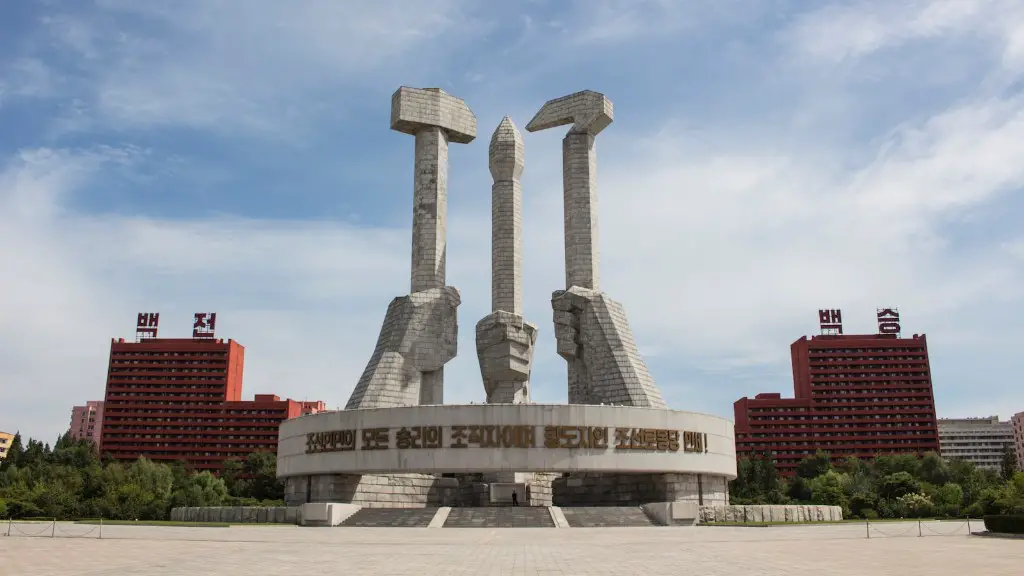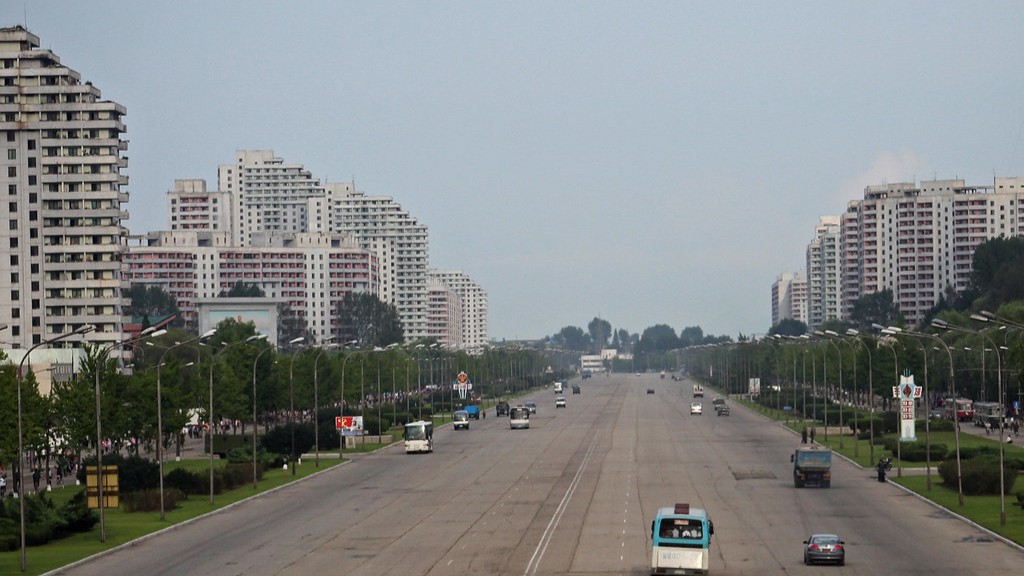China is one of the few countries in the world that has close political and economic ties with North Korea. The two countries have had a relationship since the Korean War, when Chinese forces fought alongside those of the North Korean army. Recently, China has played an even larger role in propping up the isolated North Korean regime, providing economic and other forms of aid. But is China an ally of North Korea in the full sense of the word?
While China has a good relationship with North Korea, it is by no means an ally. China is a superpower that has an influential voice in global politics and is a key member of the United Nations Security Council. North Korea, however, is an isolated state with little international sway or recognition. China is happy to cooperate with North Korea if it suits their interests, but they are not loyal allies.
Moreover, China has long been accused of not doing enough to stop North Korea’s nuclear weapons program. While China has called for de-escalation, it has failed to take robust action to pressure North Korea into abandoning its nuclear ambitions. The recent talks between North Korea and the United States also saw China taking a backseat, with the two Korean nations negotiating directly with the US. This has raised questions about the true extent of China’s support for North Korea.
On the other hand, some experts argue that China’s support of North Korea is driven more by a desire to maintain stability in the region. China is not interested in seeing a unified Korean peninsula under US influence, given the rising tensions between the two superpowers. As such, China has preferred to maintain the status quo and avoid any sudden changes in the region.
In addition, China and North Korea have close trade ties. China is the North Korean’s main trading partner, providing it with vital food and energy supplies. Despite sanctions, trade between the two countries remains strong, suggesting that China is not ready to completely sever ties with North Korea. This reveals that China still has some sympathy for North Korea, even if it does not wish to be formally allied with them.
China’s Role in the Peace Deal with North Korea
China has been largely silent in the recent talks between North Korea and the United States. It has been reported that China was not even invited to attend the summit in Singapore between Donald Trump and Kim Jong-un and has not been involved in any subsequent negotiations. Still, China has expressed its support for the process and has called for the lifting of sanctions in order to bolster the peace process.
However, some experts are skeptical about China’s true intentions with regards to North Korea. They point out that China has never been enthusiastic about the talks, and believe that it is only reluctantly allowing them to take place. It is also believed that China is more interested in shoring up its own influence on the Korean peninsula rather than promoting a lasting peace between North and South Korea.
To this end, China has been investing heavily in infrastructure projects in North Korea, providing the isolated nation with much-needed economic aid. Moreover, China has repeatedly called for the two Korean nations to open up talks and reach a lasting peace agreement. These actions suggest that China is at least a soft ally of North Korea, and perhaps even more interested in maintaining peace on the peninsula than either the US or North Korea.
China’s Influence on North Korean Politics
China is widely seen as having a significant influence on North Korean politics. There have been reports of North Korean elites travelling to Beijing for advice from Chinese leaders, with many of the policies adopted by North Korea being similar to those of China. North Korea has also adopted some of China’s economic policies, such as setting up “special economic zones” to attract foreign investment.
However, some experts point out that China’s influence is often overstated. Despite apparent similarities between the two countries, North Korea has largely been resistant to Chinese influence and continues to develop its own distinct policies. Moreover, China is reluctant to use its leverage to dictate North Korean policy, likely being wary of being accused of interference in a foreign nation’s affairs.
Nonetheless, it is undeniable that China has had a strong influence on North Korea, both in the past and present. China has used its economic clout to support the North Korean regime, while also offering advice on policy matters. This suggests that while China is not an outright ally of North Korea, they do have a strong and cooperative relationship.
The Future of the China-North Korea Relationship
The future of China and North Korea’s relationship is unclear. On the one hand, North Korea is increasingly looking for ways to open up to the world and break away from dependence on China. On the other hand, China is likely to remain a key ally for North Korea, as it provides a degree of stability and protection from external threats.
It is also possible that China could become a greater force for progress on the Korean peninsula. China has notably offered to facilitate talks between North and South Korea, and could use its influence to push for a peaceful resolution to the conflict. This could be an important stepping stone towards a more unified and prosperous Korean peninsula.
Whether China will become a more active partner in the peace process will depend on the interests of both China and North Korea. For now, it seems that China is content to maintain the status quo and remain a soft ally of North Korea. Only time will tell if this relationship will evolve into something more substantial.
China’s Impact on North Korean Human Rights
China’s influence on North Korea has also been felt in the area of human rights. China has been accused of turning a blind eye to the rights abuses perpetrated by the North Korean government, with reports of forced labor, excessive censorship, and dire living standards in the country. The Chinese government is also said to be complicit in North Korea’s use of cyber warfare, with reports of North Korean hackers infiltrating foreign networks with the help of Chinese infrastructure.
Despite these concerns, China has taken some steps to encourage North Korea to improve its human rights record. China has offered assistance with prisoner releases and food aid, as well as pressuring North Korea to adhere to international standards on human rights. While these efforts have been modest, they could be a sign that China is willing to take a more active role in promoting human rights in North Korea.
At the same time, China has been reluctant to criticize North Korea’s human rights record too harshly, likely being wary of upsetting the delicate relationship between the two countries. This reveals that China is more interested in maintaining stability in the region than pushing for reform in North Korea.
Conclusion
Overall, it is clear that China is not an outright ally of North Korea, but rather a pragmatic partner. China has interests in the region that it is keen to protect, and as such, it is willing to cooperate with North Korea if it serves its needs. Nonetheless, China has shown some willingness to facilitate talks and engage North Korea diplomatically, suggesting that it is open to closer ties in the future.




